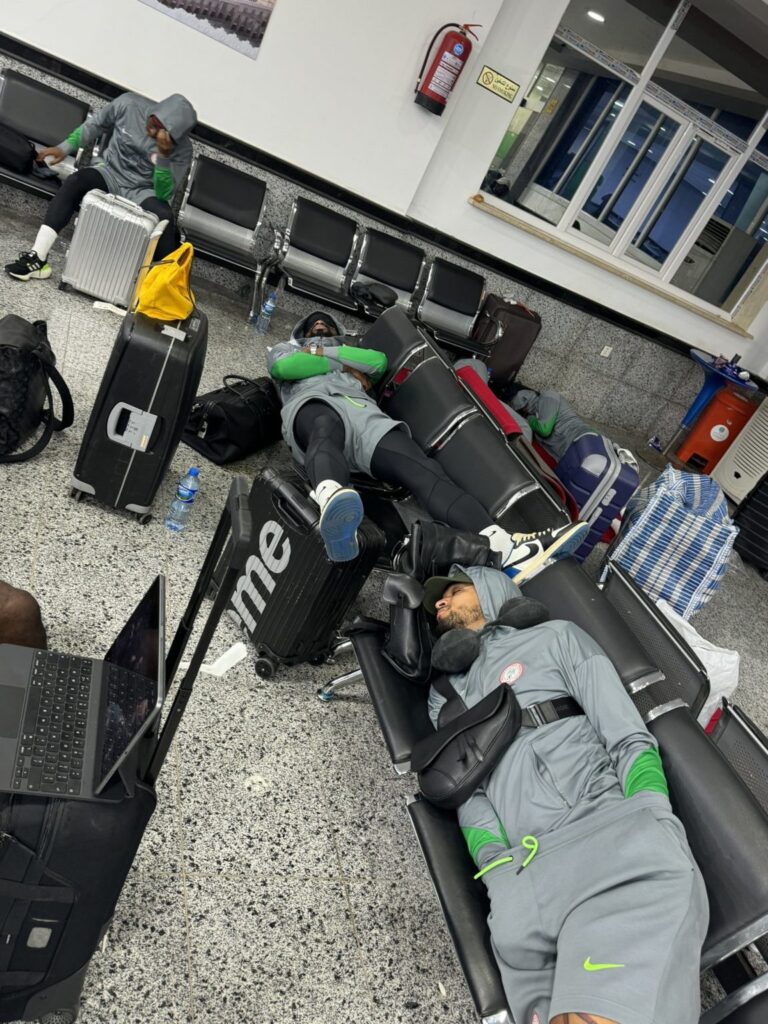The Libyan Football Federation (LFF) has threatened legal action against Nigeria following the Super Eagles’ withdrawal from their African Cup of Nations (AFCON) qualifier match scheduled for Tuesday, October 15, in Benghazi.

The controversy erupted after the Nigerian team, led by captain William Troost-Ekong, reported being stranded for over 13 hours at Al Abaq Airport without access to basic necessities such as food, water, or proper rest facilities. Troost-Ekong described the situation as “disgraceful,” accusing Libyan authorities of deliberate “mind games” by revoking their landing permit.
In a statement shared by The Libya Observer, the LFF strongly condemned Nigeria’s decision to withdraw, stating, “The Libyan Football Federation condemns the measures taken by the Nigerian Football Federation by refusing to play the Libya-Nigeria match in the African Cup of Nations qualifiers… stressing that it will take all legal measures to preserve the interests of the Libyan national football team.”

The LFF countered Nigeria’s claims, asserting that their own team faced worse treatment during the first-leg match in Nigeria. “The Libyan Federation attaches some inhumane footage that did not prevent the Libyan mission from playing the Nigeria-Libya match last Friday in Nigeria, out of cooperation with the Confederation of African Football,” the statement read.
Furthermore, the LFF accused the Nigerian Football Federation of failing to cooperate in arrangements for both legs of the qualifier. They emphasized that the challenges faced by the Nigerian team in Libya “do not equal a small part of what the Libyan national team was exposed to in the first leg match.”

The incident has sparked a diplomatic row between the two nations’ football associations, with both sides presenting conflicting accounts of their treatment. Photos circulating on social media showed Nigerian players sleeping on airport benches, fueling public outrage and support for the team’s decision to withdraw.
The LFF extended an apology to Libyan football fans for the confusion and delays in match arrangements, attributing these issues to the actions of the Nigerian Football Federation.
As tensions escalate, the Confederation of African Football (CAF) is expected to review the situation and potentially mediate between the two federations. The outcome of this dispute could have significant implications for both teams’ AFCON qualification prospects and broader diplomatic relations between Libya and Nigeria in the realm of sports.



